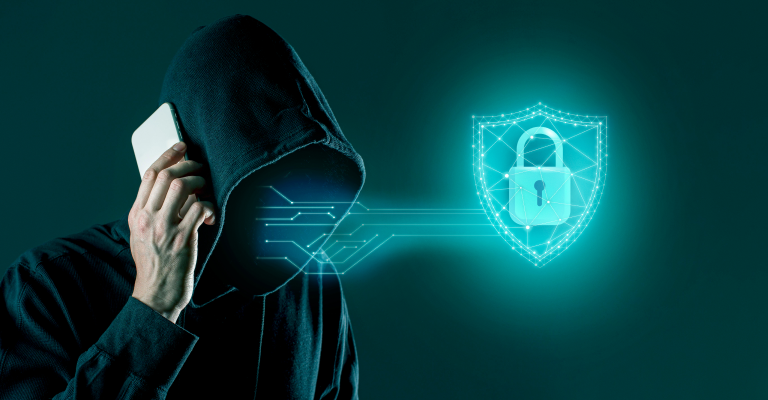Digital identity management faces major challenges in both enterprise and government sectors. Credential theft causes over 80% of data breaches, exposing the weaknesses of traditional identity systems. Organizations struggle to manage multiple credentials, leading to inefficiencies and security risks. Outdated centralized identity systems create complex processes that slow productivity and increase fraud risks.
The U.S. Government Accountability Office estimates that fraud costs the U.S. economy over $500 billion each year. Reports show that states lost more than $191 billion in unemployment fraud due to weak identity verification tools. This highlights the urgent need for modern solutions to tackle these challenges effectively.
The Evolution of Identity Management
Identity management has evolved through key milestones:
- 1960s: Fernando Corbató introduced passwords to protect digital files.
- 2000s: The rise of the internet led to more complex identity management systems, driven by increasing identity theft risks.
- 2010s: Identity as a Service (IDaaS) emerged, simplifying and automating identity management to improve security and accessibility.
- 2025 Predictions: Governments are expected to expand digital ID programs due to rising security threats and demand for seamless online services. Decentralized identity models will gain traction as organizations move toward self-sovereign identity frameworks.
How Digital Identity Wallets Are Transforming Organizations
Digital identity wallets are changing the way organizations manage identities. These wallets give users full control over their verifiable credentials, eliminating the need for centralized databases. This shift boosts security and streamlines operations.
Key Benefits:
- Seamless Authentication: Employees can log in and sign documents with a single tap, reducing password-related delays.
- Stronger Security: Cryptographic protection minimizes credential theft and fraud, addressing a major challenge in digital identity management.
- Regulatory Compliance: Digital wallets help organizations comply with GDPR, eIDAS, and other regulations, crucial for industries like finance and healthcare.
Companies using digital identity wallets see improved efficiency, security, and user experience. These technologies simplify global hiring, enhance B2B trust, and enable instant credential verification.
As 2025 progresses, AI and biometrics will further enhance digital identity systems, making them essential for businesses and governments navigating the complexities of modern identity management.
What is a Digital Identity Wallet?
A digital identity wallet is a secure application that allows individuals to store, manage, and use their digital credentials. It acts as a central hub for personal identification, holding digital certificates, biometric data, and other verification methods. Unlike physical wallets, which store cards and documents, a digital identity wallet does not keep its contents within the app itself. Instead, credentials are securely stored on a server or blockchain digital identity framework, ensuring better protection against fraud and unauthorized access.
Key Components of Digital Identity Infrastructure
- Authentication Mechanisms: Digital wallets use strong authentication methods such as multifactor authentication (MFA), biometrics, and cryptographic protocols to verify user identities and protect against fraud.
- Identity Management Frameworks: These frameworks govern how identities are created, stored, and accessed, ensuring data security and regulatory compliance.
- Public Key Infrastructure (PKI): PKI provides the foundation for secure digital interactions by using cryptographic keys and digital certificates to verify identities, encrypt sensitive information, and prevent unauthorized access.
Digital Identity Wallets vs. Traditional Identity Systems
| Feature | Digital Identity Wallets | Traditional Identity Systems |
| Data Storage | Stores verified credentials on a server or blockchain. Only private keys remain in the wallet. | Stores user profiles in centralized databases, making them more vulnerable to breaches. |
| Security | Uses encryption and biometrics for stronger protection. Users can revoke access instantly. | Relies on passwords and centralized authentication, increasing the risk of credential theft. |
| User Control | Users control and decide which credentials to share. | Organizations manage access, limiting user control over personal data. |
| Convenience | Enables seamless digital verification using smartphones. | Requires multiple passwords and authentication steps. |
| Decentralization | Supports decentralized identity W3C standards, eliminating reliance on central authorities. | Centralized identity systems create single points of failure and security risks. |
| Technology Used | Employs blockchain, biometrics, and decentralized identifiers (DIDs). | Uses centralized authentication and access control methods. |
| Adoption by Governments | Governments are implementing digital ID solutions for governments to enhance efficiency and security. | Traditional systems are evolving but still depend on centralized infrastructure. |
Role of Decentralized Identity in Digital ID Wallets
Decentralized identity (DID) is reshaping digital identity management. Instead of relying on external databases and centralized systems, identity wallets store data on users’ devices or blockchain networks. Decentralized Identifiers (DIDs) allow individuals to create and control their digital identities without needing approval from a central authority. This approach enhances privacy, security, and autonomy.
Using digital ID for business, companies can streamline identity verification, reduce fraud, and enhance customer trust. From secure employee logins to seamless KYC (Know Your Customer) processes, digital identity wallets are transforming how businesses and governments handle identity management.
As organizations and governments adopt digital ID solutions, digital identity wallets are becoming essential tools for secure and efficient identity management in the modern digital landscape.
Why Digital Identity Matters?
Digital identity matters because it keeps your information safe and gives you control over your personal data.
Why Security Matters
Cyber threats are rising, and weak credentials cause over 80% of data breaches. A strong digital identity protects you from identity theft and fraud. Features like Multi-Factor Authentication (MFA) and encryption make sure only the right people can access your data. Businesses also use digital identity to track activity and stop unauthorized access in real-time.
Why Control Matters
Traditional identity systems store your data in one place, making it vulnerable to hacks. Digital identity solutions, like decentralized identity wallets, let you decide what information to share and with whom. This keeps your data private and helps you follow laws like GDPR.
The Digital Identity Ecosystem
- Identity Providers (IdPs) create and manage digital identities.
- Service Providers (banks, healthcare, e-commerce) use them to verify users.
- Users (people and businesses) rely on digital identities to access services securely.
Standards & Interoperability
Standards like Decentralized Identifiers (DIDs) and W3C protocols make digital identities work across different platforms. This ensures security and a smooth user experience.
Types of Digital Identity Wallets
A digital identity wallet helps users securely store and manage their digital credentials. These wallets serve different needs, from personal identity management to enterprise and government applications.
1. Enterprise Identity Wallets
Businesses use enterprise identity wallets to manage employee and partner credentials securely. These wallets integrate with corporate identity systems using protocols like SAML (Security Assertion Markup Language) to streamline authentication and access control.
Key Features:
- Simplifies remote employee onboarding
- Provides secure access to company resources
- Supports inter-company transactions
- Ensures compliance with enterprise security standards
How It Works:
Enterprise identity wallets connect with existing digital infrastructure, allowing businesses to manage credentials efficiently while maintaining strong security.
2. Government-Issued Identity Wallets
Governments are adopting digital ID solutions to improve public services. The EU’s digital identity wallet initiative requires all member states to provide digital ID wallets by 2026.
Benefits for Citizens:
- Securely verify identity for online and offline services
- Digitally sign documents with legal validity
- Simplify KYC (Know Your Customer) processes for financial services
- Enable strong customer authentication for payments and logins
Public Services Integration:
Governments use blockchain digital identity and decentralized identity W3C standards to ensure security, privacy, and global compatibility.
3. Personal Identity Wallets
A personal identity wallet gives individuals full control over their credentials, following self-sovereign identity (SSI) principles. These wallets store personal data, such as passports, driver’s licenses, and academic certificates, in a secure and private manner.
Key Benefits:
- Users decide what information to share and with whom
- Enhances privacy with selective data disclosure
- Works for both online and offline transactions
Decentralized Identity & Security:
Using decentralized identity W3C standards, personal identity wallets reduce reliance on centralized authorities, improving privacy and user control.
A digital identity wallet enhances security, convenience, and control over digital credentials. Whether for businesses, governments, or individuals, these wallets are shaping the future of secure online interactions.
What Are Countries with Digital ID Initiatives
Digital identity systems are being adopted worldwide, with various countries implementing initiatives to enhance identification processes for citizens and businesses. These systems often aim to improve access to services, streamline operations, and bolster security.
Examples of Countries Implementing Digital ID Systems
Several countries are leading the way in digital identity adoption:
- Norway: BankID provides a secure and widely used digital ID for accessing online services.
- Singapore: SingPass facilitates access to over 1,500 government services with strong security features.
- South Korea: Korean Digital ID enables secure online identity verification for various services.
- India: Aadhaar provides a unique 12-digit ID for over 95% of the population, facilitating access to government programs.
- Nigeria: The National Identification Number (NIN) is crucial for accessing government services and financial institutions.
- Brazil: The Carteira de Identidade Nacional (CIN) utilizes blockchain technology for enhanced security.
- Philippines: ePhilID is an electronic ID card integrating personal data and biometrics.
- Vietnam: Digital ID app facilitates access to government services while ensuring data privacy.
- Estonia: e-Residency program allows individuals to establish a digital identity for online services.
Impact on Citizens and Businesses
The implementation of digital ID systems transforms how citizens and businesses access services. Citizens benefit from faster transactions in healthcare, banking, and social security, while businesses streamline customer onboarding and compliance. Digital IDs enhance security, reduce fraud, and promote financial inclusion, especially for unbanked populations. However, concerns about data privacy and surveillance highlight the need for strong protection measures to ensure user trust.
How Digital ID Wallet Technologies Work
Digital ID wallets combine biometrics, encryption, verifiable credentials (VCs), and decentralized identifiers (DIDs) to secure identity management. These technologies let users manage digital identities, share verified information, and ensure credential authenticity.
Verifiable Credentials (VCs)
VCs store identity details like licenses or diplomas in a digital, cryptographically signed format. Users can selectively share credentials, ensuring privacy and authenticity. Digital signatures confirm credential integrity, protecting against fraud.
Decentralized Identifiers (DIDs)
DIDs are unique, self-managed identifiers that don’t rely on central authorities. They store public keys on blockchain-based registries, ensuring security and user control over personal information.
DIDs and VCs Together
DIDs and VCs work together to verify identities. DIDs authenticate the issuer and subject, while VCs store trusted identity details. This integration ensures secure, verifiable identity sharing.
Public and Private Keys
Public key infrastructure (PKI) encrypts digital identity data, allowing only authorized users to access it. Advanced encryption techniques safeguard credentials from breaches.
Blockchain’s Role
Blockchain technology ensures credential authenticity through tamper-proof records. Smart contracts on networks like Ethereum anchor credentials, while decentralized storage protects user data.
EveryCRED helps users manage digital identities with a secure, user-centric approach, ensuring full control over personal information.
Conclusion
Digital identity wallets change how we manage and protect personal information. Using verifiable credentials, decentralized identifiers, and blockchain, these wallets offer a secure, efficient, and privacy-focused way to store and share identities. They empower individuals to control their data and ensure its authenticity.
As digital interactions grow, adopting digital identity wallets is crucial for safeguarding identities and simplifying verification. Choose a digital identity solution that fits your needs.
Explore EveryCRED for secure and user-friendly digital identity management. EveryCRED prioritizes security, privacy, and user control, providing innovative solutions for today’s digital world. Start your journey to a safer digital future with EveryCRED today.

 18th February, 2025
18th February, 2025 



